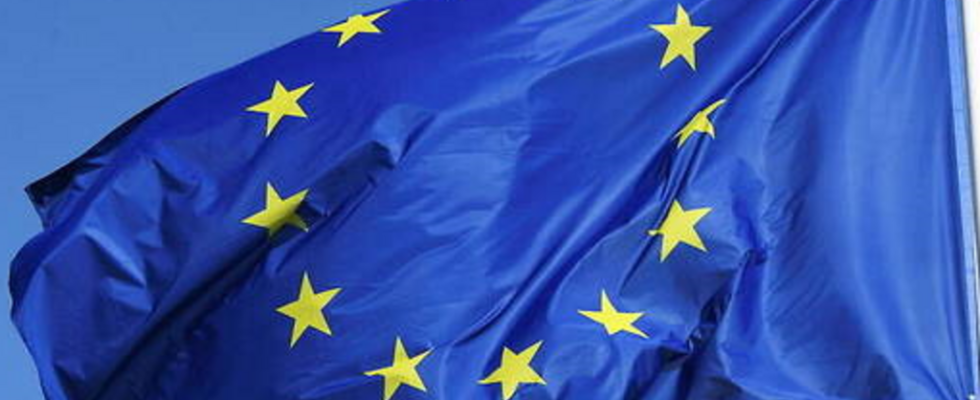This Monday, January 1, 2024, Belgium takes over the rotating presidency of the Council of the European Union after a somewhat truncated Spanish presidency, the fault of the political crisis in the peninsula following the elections of July 2023. With more than 150 files to be processed and European elections at the beginning of June, not to mention the Belgian federal elections which are scheduled for the same day, Brussels will have to be active to close this legislature, but also to prepare for the next one. Interview with Sébastien Maillard, director of the Jacques Delors Institute from 2017 to 2023 and today special advisor to the Grande Europe Center on enlargement.
5 mins
RFI: What are the challenges and objectives set by Belgium for these next six months of presidency of the Council of the European Union?
Sébastien Maillard: The challenge of this Belgian presidency is to finish the European legislature well since elections are scheduled for June 9, that is to say during this biannual presidency. It must therefore also guide the strategic debate to prepare for what comes next, in other words the next European cycle, the next five years.
To finish the legislature well, it inherits what the Spanish presidency which in the end was not unworthy since if we look at the very last straight line of this presidency, it was able to complete major issues. I am thinking of the stability pact (the budgetary rules) or the immigration pact. This is all the less work that Belgium inherits.
One of the big issues that it will still have to deal with will be the revision of what is called the multiannual financial framework, that is to say the European budget for the coming years, and then also ensuring that the Aid to Ukraine does not weaken. Belgium therefore has both internal and geopolitical issues to address, but it will also have to guide the debates since we are approaching the European elections. We must already prepare the road map for the next European Commission, lead this debate to really determine where Europe wants to head.
And Belgium doesn’t have much time. It only has three useful months to complete the legislative files given that from April 25, the European Parliament will no longer be able to co-legislate.
Read alsoMadrid takes the helm of the EU Council in a complicated political context in Spain
You’re talking about this shortened presidency. Can we expect the European institutions to operate at a slower pace because of the elections scheduled in six months, or on the contrary will they speed up on current issues?
The best argument when you want to close a file is to say: “ be careful, there is not much time left “. Belgium can take advantage of it to move forward, if it manages the limited time well. Personally, I expect a presidency in two stages: a very accelerated presidency in the first quarter and then indeed a much slower presidency, in any case much more in preparatory mode and strategic thinking for the future, less in operational mode. But at the end of the legislature, the fact that the elections are approaching is, on the contrary, a pressure which must be used to complete the files started. When you have five years ahead of you, you are sometimes less productive, so it can be a very useful presidency. But the Spanish presidency was ultimately more effective than anyone expected.
Precisely, the fact that, as in Spain, Belgian federal elections will be organized during this presidency, does that not also condition this presidency? Shouldn’t Europe pay a little more attention to the electoral calendar and avoid finding ourselves in such a situation?
It is true that presidencies follow one another and are marked by national deadlines. We had some in France during the six-month presidency. In Spain, this was not planned, but it is true that these early elections have tarnished the start of this presidency a little. Pedro Sanchez, the president of the Spanish government, had his mind elsewhere. And then we see it now in Belgium. This was also the case with Sweden. It’s not easy to capture attention when you’re caught up in national deadlines.
But this is not new and Belgium has the advantage of being a founding state, very pro-European. As much, it is a politically fragmented country, with a heterogeneous coalition of nearly seven parties, with great divergences, different points of view… But I would say that, beyond this political diversity, all these parties find themselves at less on one thing: it is the desire for Europe, for European integration. Belgium is viscerally attached to European construction, so it has every interest in showing that it can be useful to Europe since it is Europe, I would say, which holds it together. She will also be able to take advantage of her presidency to promote better national unity which she lacks.
With the Belgian elections arriving on June 9, that is to say at the same time as the European elections, the electoral campaign will take place during the second part of the presidency. Let’s hope that these national deadlines will not distract him too much from his duties towards the European presidency. It must be remembered that Belgium has know-how that is highly appreciated in Europe, it is the art of compromise. We know that between French-speaking and Flemish, between socialists, liberals and conservatives, Belgium itself constantly lives from these compromises. Perhaps it will be able to put this legendary know-how to the benefit of Europe. And that is also one of Belgium’s added values.
Read alsoEuropean elections: Belgium opens the right to vote to 16-17 year olds
